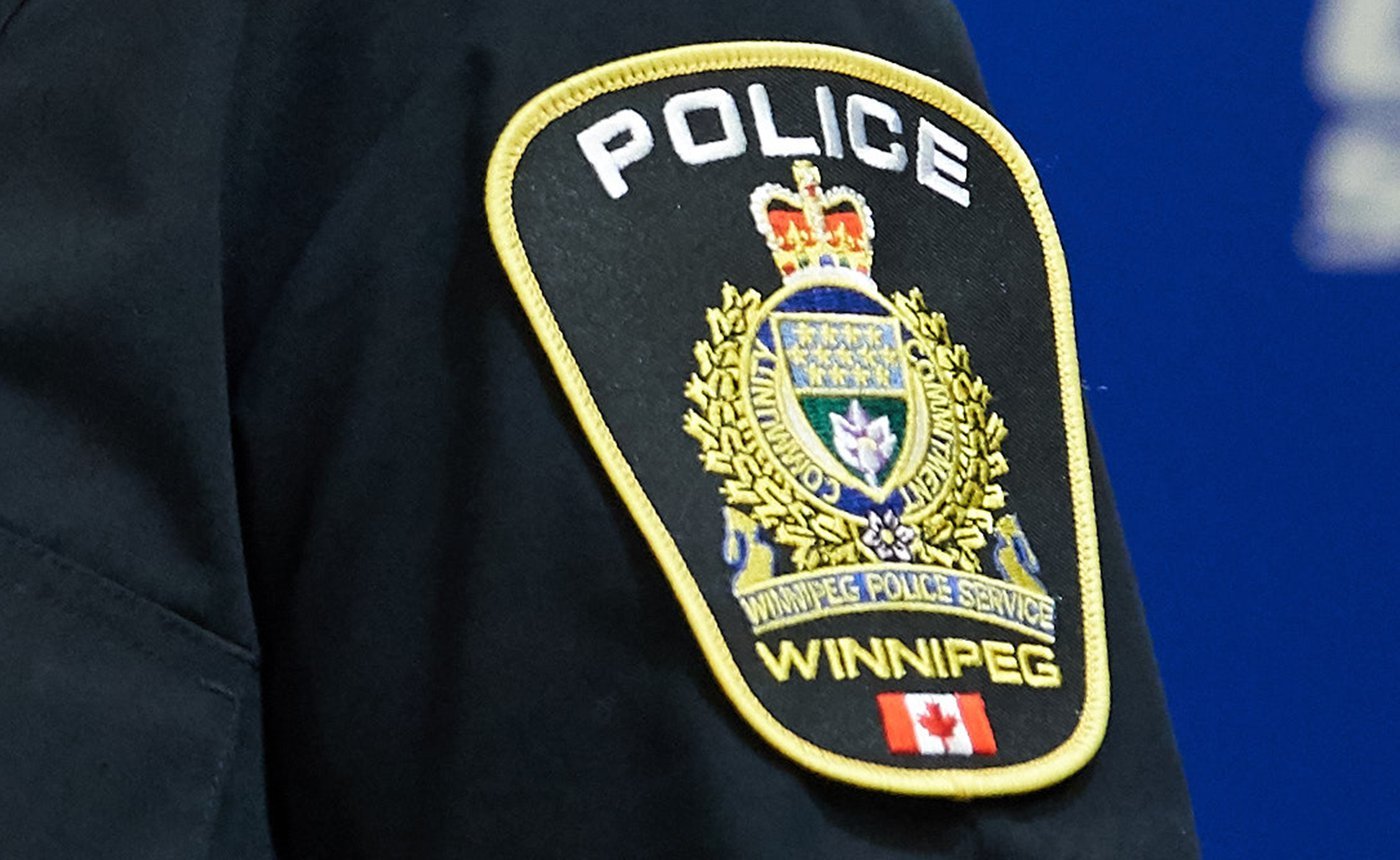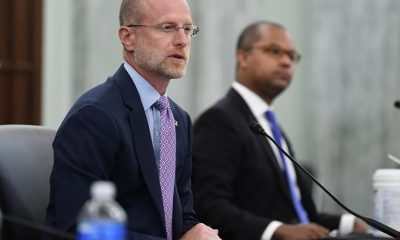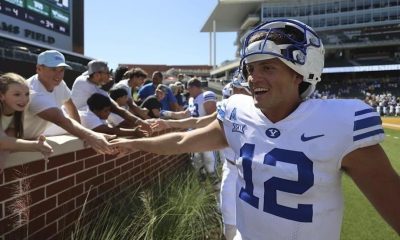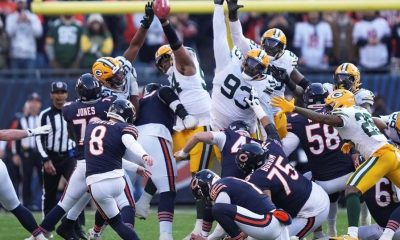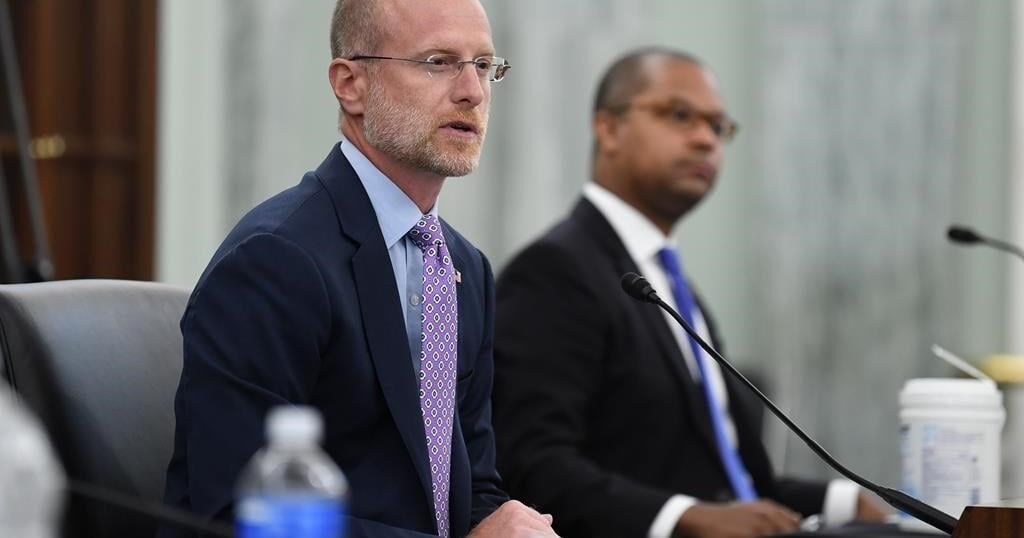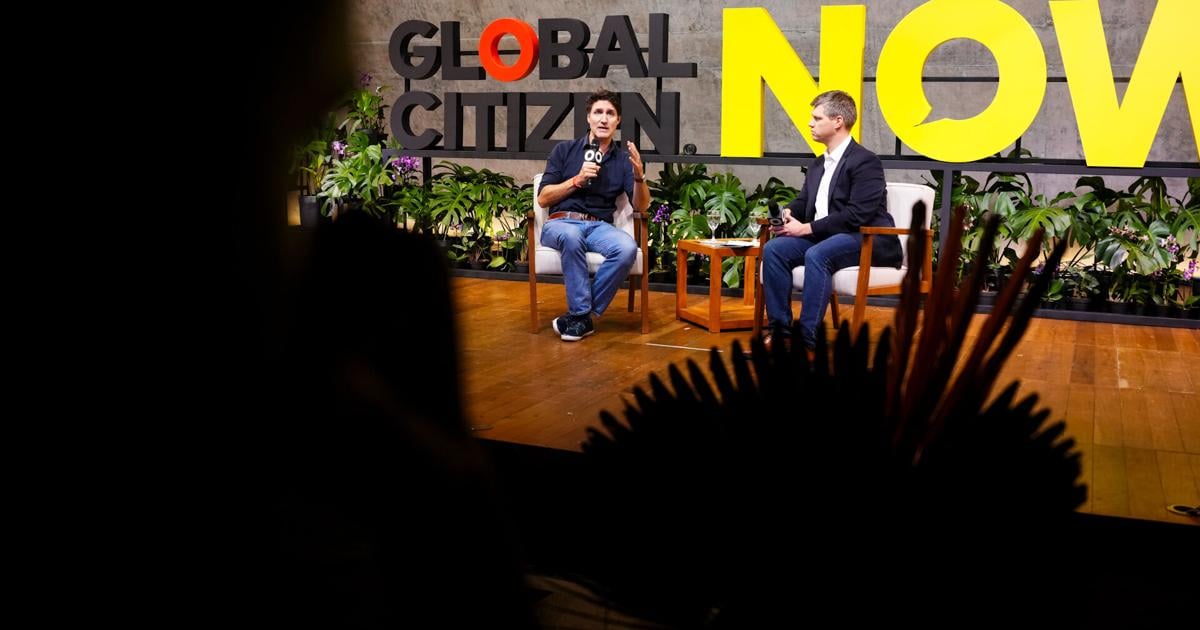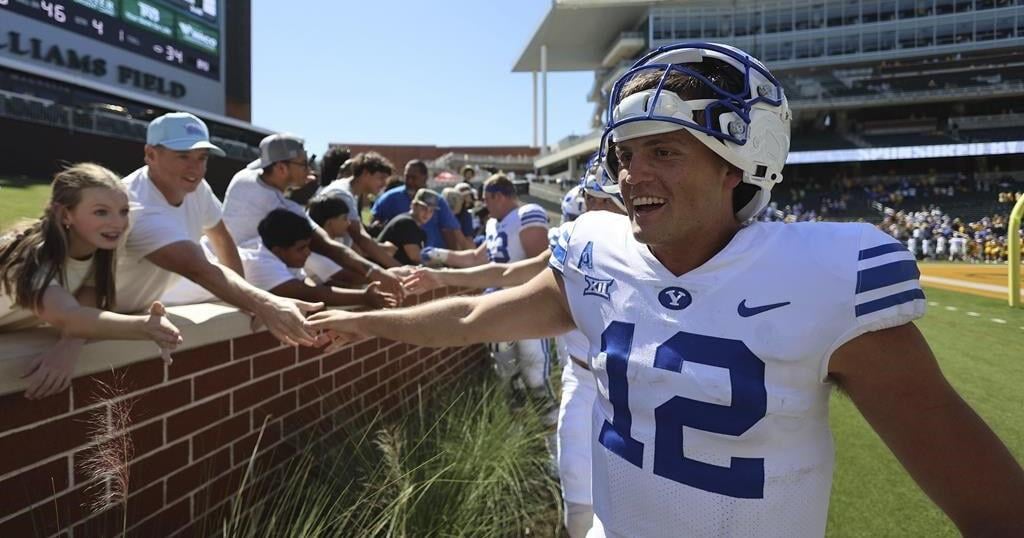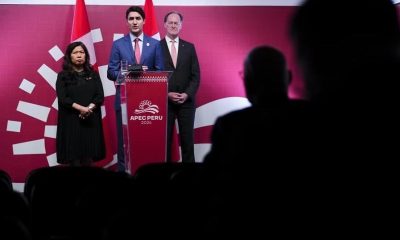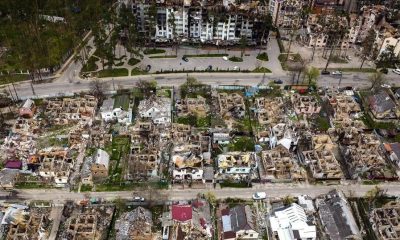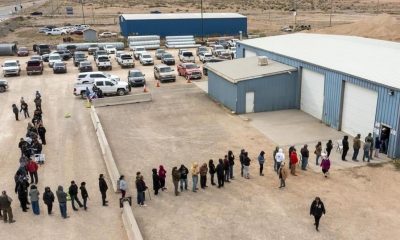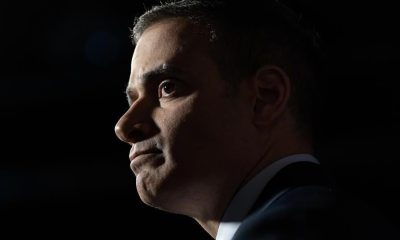PROVO, Utah (AP) — Shortly after sunset on Saturday, Rabbi Chaim Zippel clasped an overflowing cup of wine and a tin of smelling spices as he marked the end of the Sabbath with a small Jewish congregation at his home near Provo, which doubles as the county’s only synagogue.
The conclusion of the ceremony known as Havdalah set off a mad dash to change into blue and white fan gear and drive to the football stadium at nearby Brigham Young University, the Utah private school run by The Church of Jesus Christ of Latter-day Saints.
Zippel never expected to become a BYU fan, or even a football follower, but that changed when the school where 98.5% of students belong to the faith known widely as the Mormon church added its first Jewish quarterback to the roster.
With Jake Retzlaff at the helm, the Cougars won nine straight games in what was shaping up to be a storied season before a loss Saturday against the Kansas Jayhawks ended their undefeated run. Even so, BYU — ranked No. 14 in the AP Top 25 — could end the season at the top of the Big 12 Conference with a chance to make the College Football Playoff.
Retzlaff has earned a hero’s embrace by rabbis and others in Provo’s tiny but tight-knit Jewish community while also becoming a favorite of the broader BYU fan base that lovingly calls him the “BYJew.”
One of just three Jewish students in a student body of 35,000, the quarterback and team co-captain who worked his way into the starting lineup has used his newfound stardom to teach others about his own faith while taking steps to learn more about Judaism for himself.
“I came here thinking I might not fit in with the culture, so this will be a place where I can just focus on school and football,” Retzlaff told The Associated Press. “But I found that, in a way, I do fit. People are curious. And when everybody around you is so faith-oriented, it makes you want to explore your faith more.”
The junior college transfer from Corona, California, formed a fast friendship with the Utah rabbi when he came to BYU in 2023. The two began studying Judaism fundamentals each week in the campus library, which would help Retzlaff speak confidently about his faith in public and in his many required religion classes.
BYU undergraduates must take classes about the Book of Mormon, the gospel of Jesus Christ and the faith’s core belief that families can be together forever if marriages are performed in temples. Retzlaff said he was surprised to find many references to the Jewish people in the Book of Mormon. Some classmates and fans have even called him “the chosen one,” referring to both his success on the field and a Latter-day Saint belief that members of the Jewish faith are God’s chosen people.
“It’s a lot of respect, honestly. They’re putting me on a mantel sometimes, and I’m like, ‘Whoa guys, I don’t know about that,'” he said with a laugh.
Retzlaff, 21, has embraced becoming an ambassador for his faith in college football and in a state where only 0.2% of residents are Jewish. The redshirt junior wears a silver Star of David necklace on campus and attends dinners on Shabbat, the Jewish day of rest, at the rabbi’s house during the offseason.
He led Utah County’s first public Hanukkah menorah lighting last year at Provo’s historic courthouse, brought a kosher food truck to a team weight training and wrapped tefillin with Zippel in the BYU stadium. The tefillin ritual performed by Jewish men involves strapping black boxes containing Torah verses to the arm and forehead as a way of connecting to God.
“I told Jake, I said, after doing this here, after connecting to God on your terms inside the stadium, no amount of pressure will ever get to you,” Zippel said. “I think there’s no greater example of finding your corner of the world where you’re supposed to make your impact and making that impact.”
Retzlaff is affiliated with the Reform denomination of Judaism, which melds Jewish tradition with modern sensibilities, often prioritizing altruistic values and personal choice over a strict interpretation of Jewish law. He plays football on Friday nights and Saturdays during Shabbat and says sports have become a way to connect with his faith and to inspire young Jewish athletes.
Among them is Hunter Smith, a 14-year-old high school quarterback from Chicago who flew to Utah with his dad, brother and a group of Jewish friends to watch Retzlaff play. The brothers sported Retzlaff’s No. 12 jerseys, and their father Cameron wore a “BYJew” T-shirt depicting Retzlaff emerging from a Star of David, the most recognizable symbol of the faith.
“Being the only Jewish quarterback in my area that I know of, I feel like I get to pave my own path in a way,” Smith said during Saturday’s game. “Jake’s the only Jewish quarterback in college football, so he’s someone I can relate to and is like a role model for me, someone I can really look up to.”
When Retzlaff lit Provo’s giant menorah last December, Zippel said he was touched to hear the quarterback speak about the importance of his visibility at a time when some Jewish students didn’t feel safe expressing their religious identity on their own campuses amid heightened antisemitism in the United States.
His presence has been especially impactful for BYU alumna Malka Moya, 30, who had struggled to navigate her intersecting identities on the campus as someone who is both Jewish and a Latter-day Saint.
“Jake feels very comfortable wearing his Star of David all the time,” said Moya, who lives near Provo. “I haven’t always been very comfortable with expressing my Jewish identity. But, more recently, I feel like if he can do it, I can do it.”

